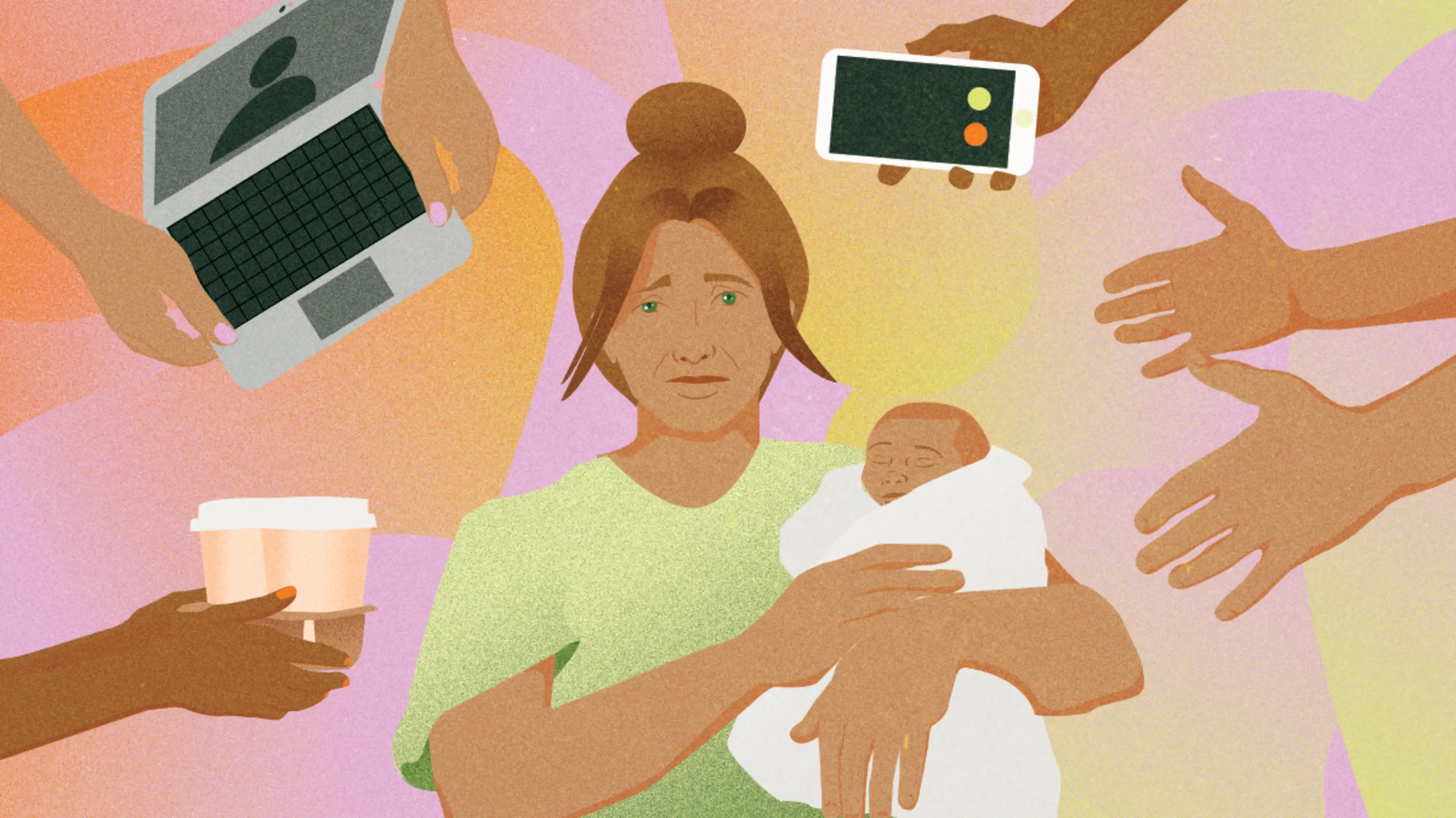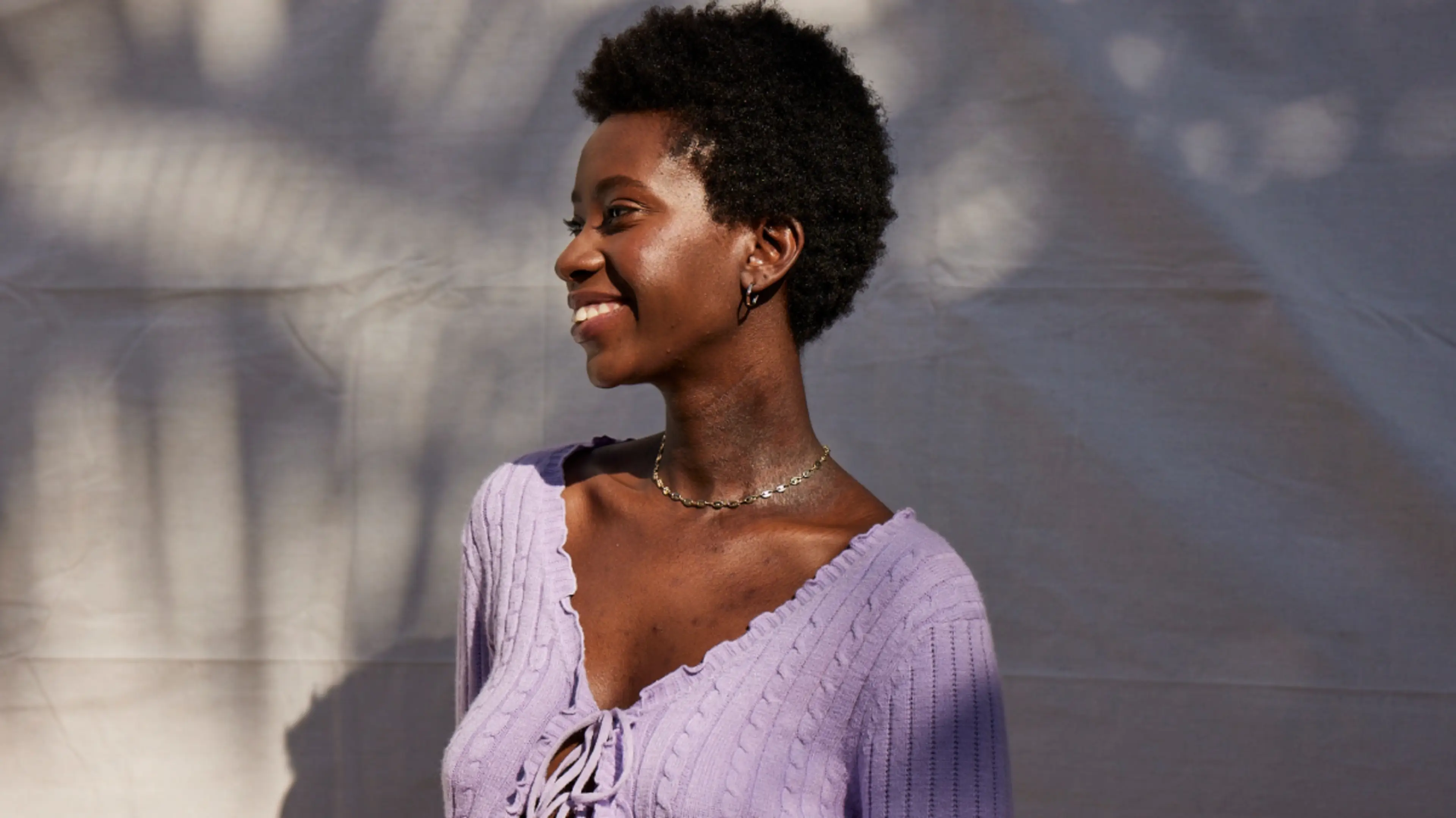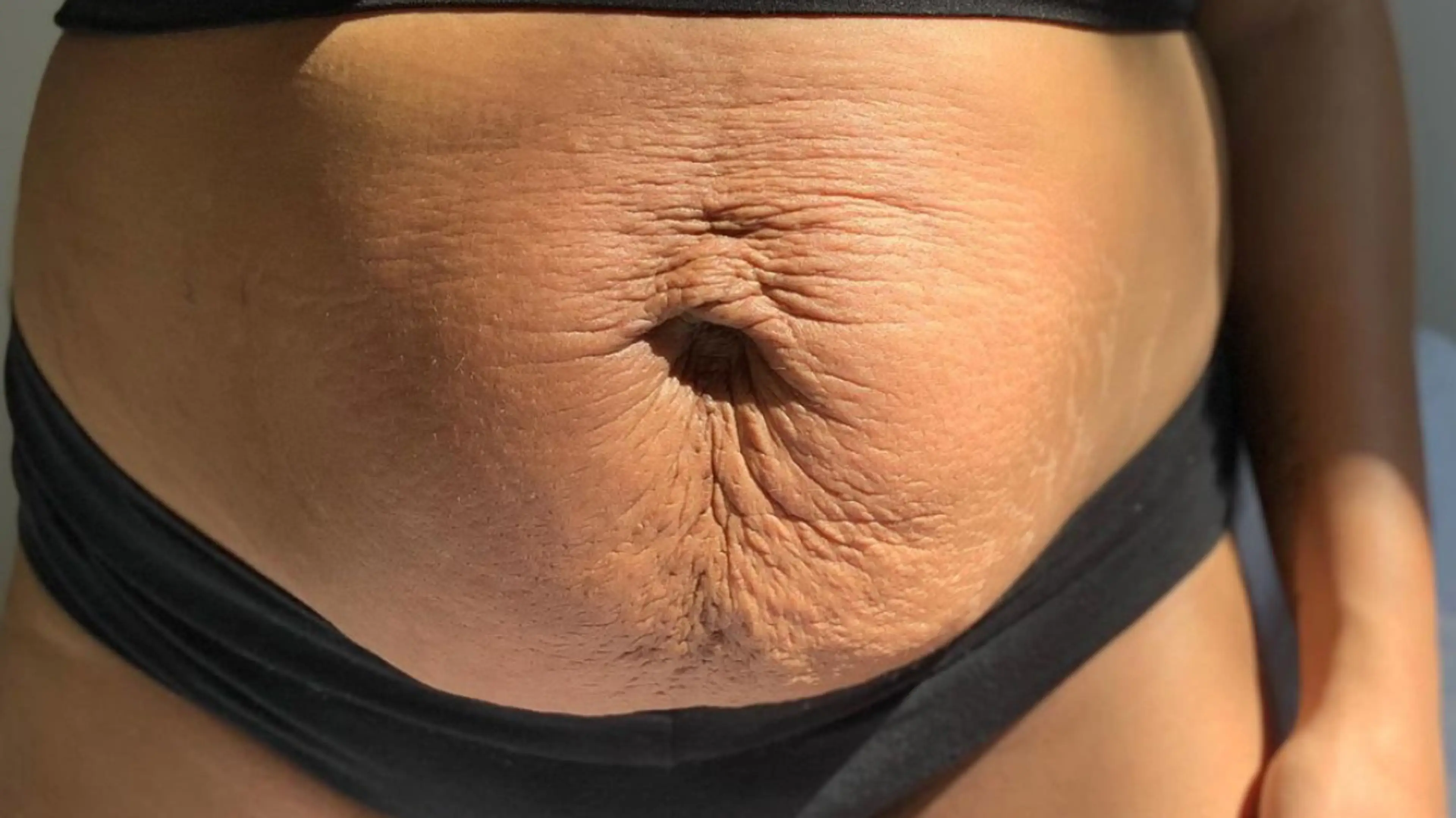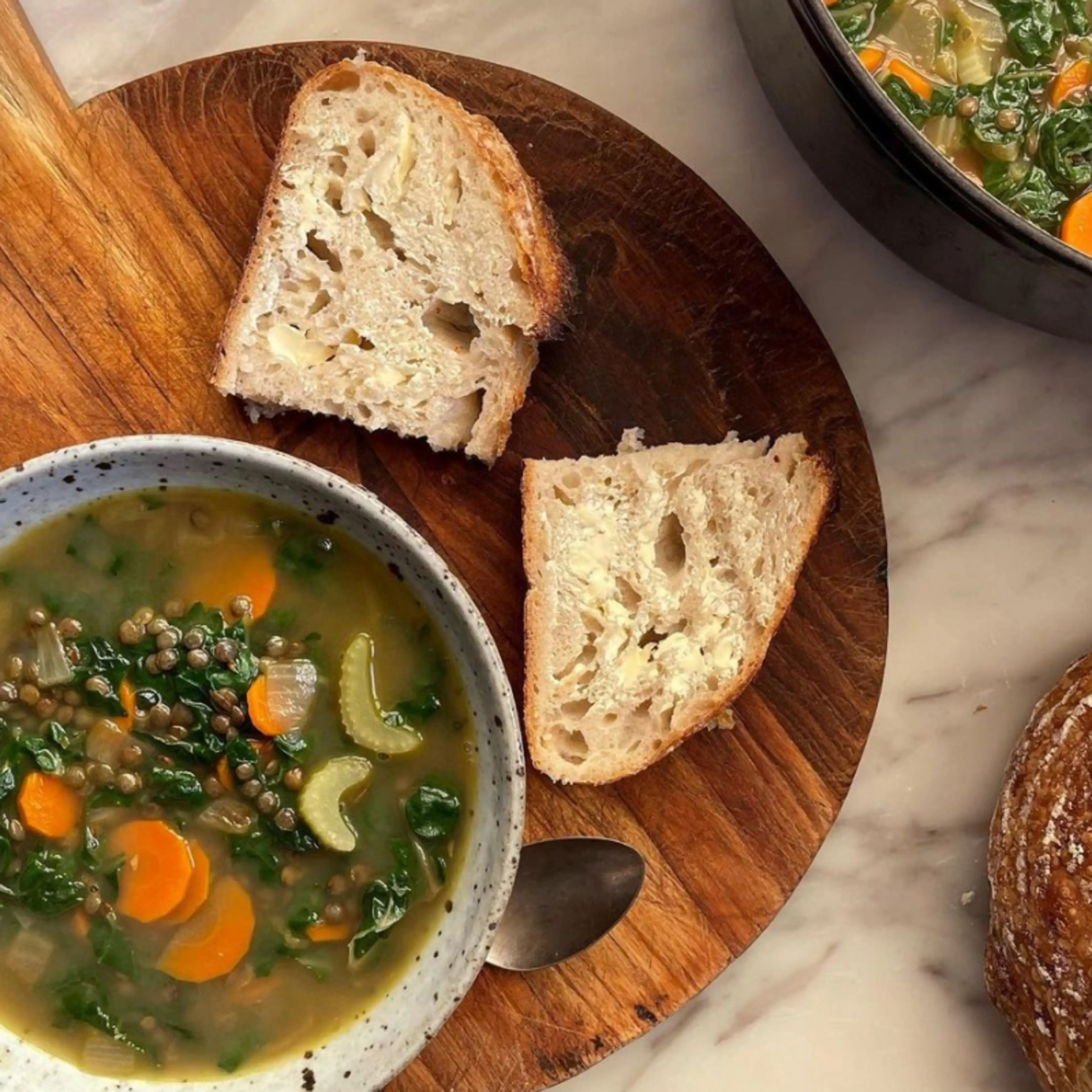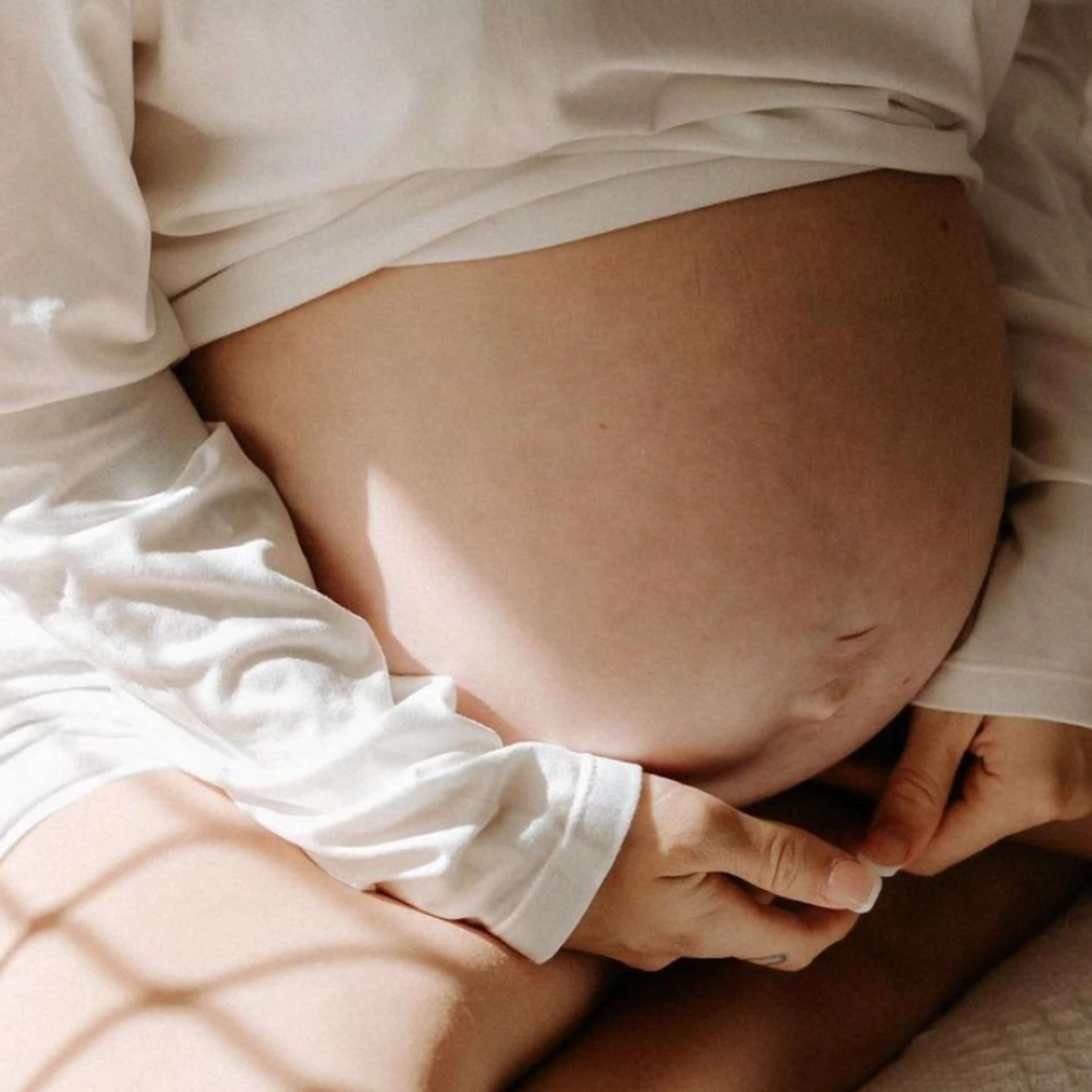Most parents-to-be spend a lot of time prepping for their baby’s arrival. But what happens after your little one is actually here? That time after birth, the postpartum period, isn’t talked about nearly as much as many other aspects of pregnancy and birth. But it’s just as important—if not more so—to think about this crucial time when you’re preparing to welcome a new baby.
While you may know how a doula can support you during birth, did you know there are postpartum doulas to support you after birth as well? We sat down with Emilie Rodriguez1 , a birth and postpartum doula and founder of Ashé Birthing Services2 , and one of her partners, Guramrit LeBron3 , to talk about the role of postpartum doulas, how they support birthing people and the importance of prioritizing rest and care during the postpartum period.
When most people think about a doula, they immediately think of someone who supports a birthing person during labor and delivery. But there are also postpartum doulas! What is that, exactly?
A doula is a trained professional who guides and supports families during the childbearing years (labor, birth, postpartum, and beyond). A postpartum doula specializes in that crucial transition from a pregnant person to a new parent. Sure, the babies are cute, but this work really focuses on caring for the new family on a deeper, more intimate level during this vulnerable and transformative life experience.
Why would a birthing person need a postpartum doula? What sorts of things do they do?
We think everyone should have a postpartum doula! Especially in the first six weeks postpartum. That’s such a crucial, sacred, and special time. As our elders say, “the first 40 days4 after birth affect the next 40 years of a birthing person’s life.”
A postpartum doula focuses on the diad of birthing a person + baby. We take care of you so you can take care of your baby. That includes processing the birth, newborn care, aiding in recovery and healing, cooking restorative, nutrient-dense meals and snacks, light cleaning and also helping the partner and the family. You can actually sleep because I’m doing your dishes for you!
In the U.S. many parents go back to work after six weeks, some sooner if they’re the sole provider. The emphasis is not on rest and recovery. Birth is a MAJOR life event, and postpartum is an even bigger transition. Not to downplay it, but birth is just a day or two—postpartum is years long. Who you were before you gave birth does not exist anymore. It’s a hard reality to hear because society tells you you’re supposed to be that person again.
Do you think there’s a particular stigma here in the U.S. about taking time “off” during the postpartum period and asking for help? Why do you think that is, and how do you think your role as postpartum doulas is helping to change that stigma?
I think there’s a superwoman complex where we’ve fought to be at the table so hard that we are really harsh critics of ourselves. We’re trying to make everything work—a clean house, a perfect dinner—but then we suffer. That’s why as doulas we focus on the birthing person and not the baby. Society focuses on the baby. There’s a baby shower, everyone brings presents for the baby…and the birthing person is left alone. If you have someone who’s really focused on the birthing person, the baby is going to be fine.
The first six weeks are not about just getting past it so we can get back to work, back to working out, back to our past selves. Instead, it’s what is called in many other cultures a “sacred window.” What you do in those 40-42 days shapes your experience going forward. In many cultures around the world, the emphasis is on lying in, resting, recovering, and bonding with your newborn baby while you are taken care of by your community and support system. The emphasis is on slowing down and just being. It’s such a hard concept especially since we’re constantly on the move and packing our days with our to-do lists. Can you imagine what it would be like to just be in your little postpartum bubble?
The password for pregnancy, labor, and postpartum is surrender. That’s what I tell people. The earlier you surrender, the easier it will be.
How else can a postpartum doula help a birthing person and a new family?
There is also a lot of focus on education. When you are discharged from the hospital, you’re discharged to…no one. “Wait, I get to keep this baby? But I just learned how to change a diaper!” are things we hear a lot from new parents. A postpartum doula can help with breastfeeding and/or bottle feeding support and establishing newborn procedures and routines. The postpartum doula aims to make the family comfortable and confident in their new role, and to empower the parents to care for their new baby themselves.
It’s also often really helpful to have a non-biased, outside person who is not related to you to just be present, whether it’s prepping your meals or silently folding the laundry while you rest. They’re not asking anything of you except for you to prioritize taking care of yourself. That’s really hard for new parents. It’s hard to ask for and receive help.
How should someone go about hiring a postpartum doula?
Ask other parents who’ve utilized the support of a postpartum doula. If they loved who they hired, they will happily recommend someone to you. If you have taken childbirth education classes or newborn care classes (which we really recommend doing!) you can always ask for recommendations there as well.
Look for someone you feel connected and comfortable with. (Really comfortable. Think about the type of person you’d feel comfortable just being in your mesh underwear, practically naked around!) Or maybe you want someone who can just cook you something delicious or help out with your older kiddo; there are doulas who specialize in those things too.
Other things to consider before hiring a postpartum doula are: what is your budget, how many hours a week or day would you like support, what are your expectations of this person in your home, do you want someone who is more focused on taking care of errands and things around the house or helping you with newborn care and postpartum recovery or a little of both.
Emilie, as the founder of Ashé Birthing Services, tell us about your background. How were you drawn to becoming a doula, and how was Ashé born?
I have a background in medical anthropology, studying birth in the United States. I was also a veterinary technician for nine years. And oddly enough, those two things are kind of similar! Working with animals taught me about anatomy and various medications, and medical anthropology led me to ask questions like, “why are most people birthing on their back in the United States when most people in the world squat?”
At the time, I thought I was a birth expert—and then I got pregnant. And I realized I didn’t really know anything. It was a huge learning curve, and I realized there are so many things that nobody talks about or tells you when it comes to pregnancy, birth and postpartum. I took a childbirth education class and went from planning a hospital birth to giving birth at home with a midwife and a doula. And it was amazing.
I founded Ashé with another partner and friend, Griselda, and we started building the team from there. Ashé means “and so it will be”—another way of saying “amen.” It speaks to who we are and that we walk in purpose. At this point I’ve been a doula for a little over five years.
Why do you think there are fear and anxiety around both giving birth and the postpartum period in this country? In your role as a doula, how can you help birthing people deal with this?
Birth and postpartum have a huge learning curve, and people don’t know what to expect, and therefore are nervous about it. Also, the media perceives birth as something that’s extremely painful and awful. It’s not normalized. Unless you watch YouTube videos of birth, attend a birth education class, or have seen birth in real life, you don’t know what to expect—and that’s scary. The unknown is always scary.
You need to equip yourself with the information so you know what’s normal. As birth doulas, that’s a lot of what we do.
We also like to empower people by giving them options. We give you all the options so you can make an informed decision. We want to give you the tools you need to make the decision that’s right for you and your family.
As women of color, can you talk about Black birth? Statistics show that communities of color, especially the Black community, face higher rates of infant mortality, higher rates of maternal mortality, and more instances of undesirable birth outcomes when compared to white communities. Can working with a doula be helpful in reducing these negative outcomes?
I love this question. And it’s huge. Absolutely. We know that doulas impact birth outcomes. Research shows5 that with a doula there is a 50% reduction in the cesarean rate, 25% shorter labor, 60% reduction in epidural requests as well as improved breastfeeding rates and decreased postpartum depression.
If we’re talking about Black lives, we have to talk about Black birth. Because it’s racism, not race, that is giving us these numbers. We’re very proactive in the Black community. We’ve raised over $46,000 on GoFundMe for a community fund for birth support for Black and brown people. We’re also about to launch a directory for birth workers of color so people can find an obstetrician or a midwife or a doula that looks like them.
What is the biggest piece of advice you would offer expecting parents about the postpartum period and postpartum care?
Empower yourself and redefine asking for help. It’s so hard to ask for help and to receive it—but it’s also okay. You are not alone. This time is precious and sacred. You deserve to be taken care of, eat yummy things and rest. (We cannot emphasize resting enough!) We’re so go go go and we want to do it all. Our society has it set so that we have to get up and go right after birth. There is no need for that. You deserve that time to rest and recover.



